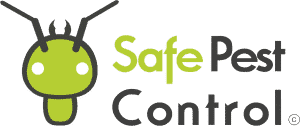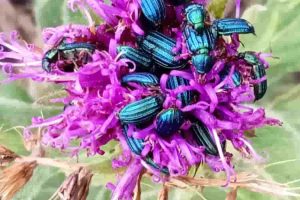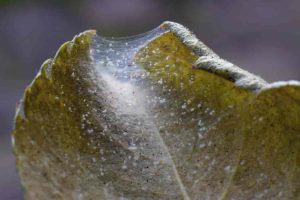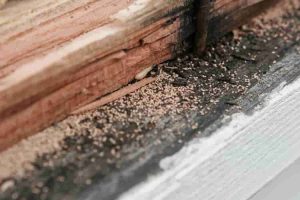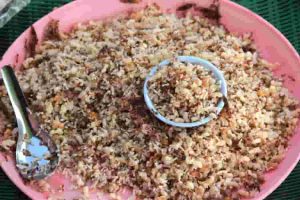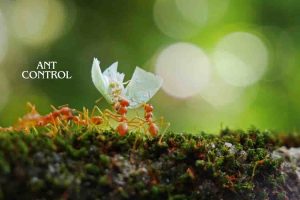Armyworms are a significant threat to our gardens and lawns. These pests, known for their rapid breeding and destructive feeding habits, can cause severe damage to young plants and turf. Effectively controlling armyworms involves a combination of timely monitoring and targeted treatments. This proactive approach ensures we stay ahead of infestations and protect our green spaces.
We need to understand the lifecycle of armyworms to combat them effectively. The critical period to watch out for is the last few weeks before harvest. This is when they tend to cause the most damage, feeding on the tender growth of leaves and seedlings. Using products like Yates Grub Kill & Protect can help manage these pests. Additionally, consulting local nurseries or pest control services, such as Safe Pest Control, can provide customized solutions.
Armour yourselves with information on how to spot early signs of an infestation. Look for caterpillars on the undersides of leaves or signs of chewed foliage. Using integrated pest management strategies, including both chemical controls and natural predators, can be highly effective. Keeping our lawns and gardens healthy and pest-free requires vigilance and the right tools. By staying informed and prepared, we can protect our outdoor spaces from the destructive nature of armyworms.
Understanding Armyworms
Armyworms are known for their destructive impact on crops and lawns. These pests go through several life stages, each with unique characteristics and behaviors that are important to recognize for effective control.
Species Overview
There are three primary species of armyworms commonly found in southern Australia: the common armyworm, southern armyworm, and inland armyworm. They vary slightly in appearance but share similar habits and types of damage to crops. The common armyworm, also known as Leucania convecta, was formerly called Mythimna convecta.
Each species can cause significant agricultural damage by feeding on crops and pastures. Identification of the correct species isn’t always critical because their control methods are quite similar. Recognizing them by their caterpillar stage, when they are most destructive, is essential.
Lifecycle and Behaviour
Armyworms undergo a complete metamorphosis with stages including egg, larva (caterpillar), pupa, and adult moth. Females lay clusters of eggs on plants. These eggs hatch into larvae in a few days. The caterpillar stage is when they cause the most damage, feeding on leaves and crops.
As they mature into pupae, they enter a resting phase before becoming adult moths. Adult moths have a wingspan of about 30-40 mm and are active in spring, summer, and autumn. Understanding their lifecycle helps in timing control measures effectively to prevent major infestations.
Preventive Measures and Control
To effectively handle armyworm infestations, we must consider cultural, biological, and chemical control methods. Each approach offers unique strategies to combat these pests and protect our plants and crops.
Cultural Controls
Cultural controls focus on altering farming practices to prevent armyworm infestations.
Crop rotation is essential in disrupting the lifecycle of armyworms. By changing the types of crops planted each season, we reduce the chances of armyworms finding suitable food.
Maintaining healthy soil and proper irrigation can make plants less attractive to armyworms. A strong plant is less likely to be attacked compared to a weakened one.
Weed management is another effective strategy. Weeds can serve as alternate hosts for armyworms, so removing them can limit potential breeding grounds.
Biological Controls
Biological controls use natural enemies and beneficial insects to manage armyworm populations.
Parasitoids like wasps can lay their eggs inside armyworms, eventually killing them. Encouraging these beneficial insects is an effective way to control armyworm populations naturally.
Predators such as birds and ground beetles also play a significant role. Maintaining habitats that attract these predators can help keep armyworm numbers in check.
Using Bacillus thuringiensis (Bt), a naturally occurring bacterium, is another biological control method. When armyworms ingest Bt, it disrupts their digestive system, leading to their death. This method is safe for other insects, humans, and animals.
Chemical Controls
Chemical controls involve using insecticides and sprays to eliminate armyworms.
Insecticides can be effective in reducing armyworm populations, but should be used cautiously to avoid harming non-target species.
Integrated pest management (IPM) principles encourage the responsible use of insecticides. This means using chemicals only when necessary and opting for targeted treatments.
Sprays containing specific chemicals designed to target armyworms can be applied to affected areas. It’s important to follow recommended guidelines to ensure effective and safe use.
By combining these approaches, we can create a robust strategy to manage and prevent armyworm infestations, protecting our crops and plants effectively.
On-Time Service

5 STAR SERVICE BASED ON 100+ GOOGLE REVIEWS
PET & FAMILY FRIENDLY TREATMENT

ALL YEAR-ROUND PROTECTION
Take Back Control Now
8
REASON TO CHOOSE SAFE PEST CONTROL
- Guarantee protection all year-round
- 30 Years Collective Experience
- An impeccable reputation across Sydney's Suburbs
- Certified treatments & written Warranty On all work carried out
- Family Owned & Operated
- Rated #1 Pest Control In Sydney NSW
- No Mess, No Smell
- Family & Pet Friendly Treatments
REQUEST A QUOTE
